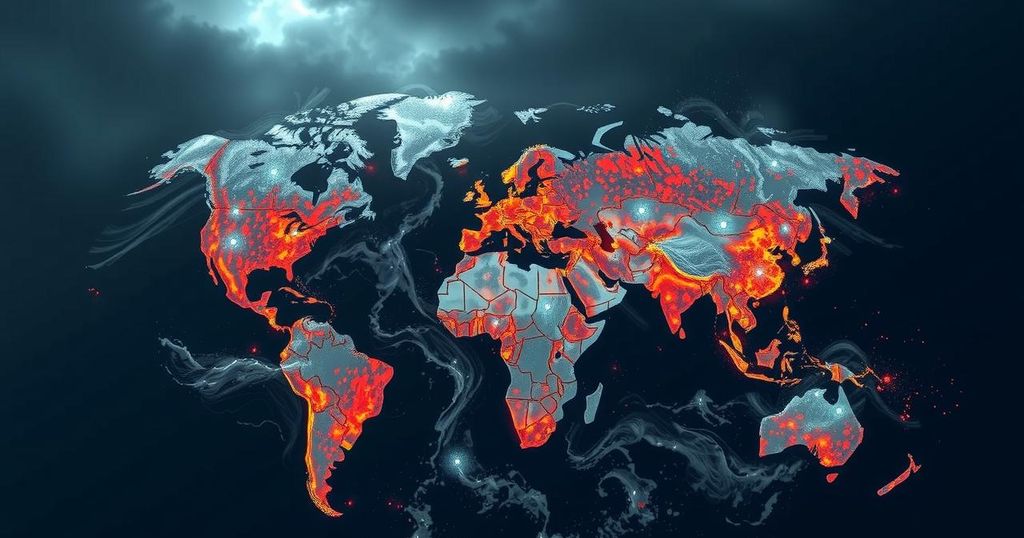One in Eight Children Affected by Extreme Weather Events This Year
Save the Children reports that one in eight children globally has been significantly impacted by extreme weather events this year, totaling 300 million children affected. Major crises include droughts, floods, and heatwaves across Asia, Africa, and Brazil, emphasizing the urgent need for children’s voices to be heard at COP29 in Azerbaijan as climate disasters increasingly threaten their rights and futures.
Approximately one in eight children worldwide has been significantly affected by the ten most severe extreme weather events that occurred this year, resulting in displacement, dependency on humanitarian aid, or missed educational opportunities, according to Save the Children. As leaders prepare for the COP29 summit in Azerbaijan, the organization reports that from January 1 to October 29, around 300 million children in regions such as Asia, Africa, and Brazil—representing 12.5% of the global child population of 2.4 billion—were impacted by these environmental disasters. The major climate crises include Tropical Storm Trami in the Philippines, which disrupted schooling for 19.5 million children; severe drought in Southern Africa, leaving 12.2 million children in need of assistance; and numerous floods across West and Central Africa affecting millions of children’s education. Other distresses include a heatwave in South Asia impacting 256 million children and Typhoon Yagi, which left significant humanitarian needs in Southeast Asia. As the intensity and frequency of climate-related disasters increase, children continue to bear the greatest burden. The World Meteorological Organization has reported a five-fold rise in such extreme events over the past half-century. Save the Children’s analysis underscores the need for the voices and experiences of children, particularly those from low- and middle-income countries, to be prioritized in climate discussions. Personal accounts like those from Kyariyam, a twelve-year-old from Nigeria, and Zinhle, a fourteen-year-old from Zimbabwe, illustrate the devastating effects of climate change on youth. Kyariyam remarked on her traumatic experience of displacement due to flooding, stressing the imperative for community rebuilding and educational support. Zinhle highlighted the dire consequences of drought on her family’s food security and education, pleading for global leaders to take actionable steps to mitigate these impacts. At the COP29 summit, Save the Children advocates for the integration of children’s rights and specific vulnerabilities into climate finance strategies and national adaptation efforts. Inger Ashing, CEO of Save the Children International, emphasized that climate change represents not only an environmental issue but a profound crisis for child rights, necessitating urgent intervention from world leaders to address the inequality exacerbated by natural disasters.
This year’s extreme weather events have disproportionately affected children, underscoring the urgent need for global attention towards their rights and welfare in the context of climate change. Save the Children has conducted extensive analyses showing that children are particularly vulnerable to the impacts of climate-related disasters such as droughts, floods, and storms. With approximately 300 million children affected by the ten worst climate events of the year, there is an urgent call for action to prioritize their needs and ensure they are included in discussions and plans aimed at addressing climate change during international summits such as COP29.
In summary, the data reveals a concerning trend regarding the significant impact of extreme weather on children globally, with over 300 million affected this year alone. Their experiences highlight a critical child rights crisis intertwined with climate change-related challenges. As Save the Children and affected youth call for attention at COP29, it is essential that world leaders act to prioritize children’s rights and integrate their needs into climate finance and adaptation plans, recognizing the injustices posed by climate change.
Original Source: reliefweb.int




Post Comment